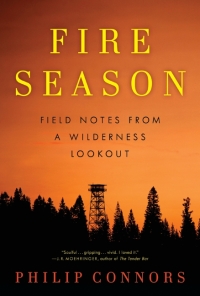A Thousand Times More Fair by Kenji Yoshino
 Friday, May 13, 2011 at 4:09PM
Friday, May 13, 2011 at 4:09PM 
Published by Ecco on April 12, 2011
Law Professor Kenji Yoshino majored in English at Harvard before attending Yale Law School. Unsurprisingly, he never lost his love of Shakespeare. In A Thousand Times More Fair, Yoshino explores the oft-considered relationship between beauty and justice -- specifically, what Shakespeare's beautifully written plays can teach us about justice.
Reading Shakespeare is like reading the Bible (or, for that matter, the Constitution): there is much of value to be mined, but the reader must be wary of fanciful interpretations. Fortunately, Yoshino's legal scholarship compels him to base his conclusions on evidence. Yoshino engages in a careful reading of the plays, liberally quoting lines and citing a variety of external sources to divine their meaning. Readers who are more interested in the plays than the law will appreciate this book for its nuanced understanding of Shakespeare. Indeed, this is not a book just (or even primarily) for legal scholars. Although Yoshino's discussion of the plays is informed by a lawyer's perspective, the legal principles that he elucidates almost become secondary to his broader reading of the plays. Nearly everyone should learn something new, or see a play or two in a different way, after reading this book.
Yoshino argues that Titus Andronicus teaches audiences that the rule of law is preferable to vengeance; that retribution must be left to the public (i.e., government) rather than the private individual because, as the play demonstrates, private revenge "necessarily dooms the avenger and his society." Although Hamlet also centers upon a desire for vengeance, Yoshino uses it to discuss the concept of perfect (or poetic) justice.
The Merchant of Venice would be an ideal vehicle for addressing the difference between law and justice; contract law entitles Shylock to a pound of Antonio's flesh, but mercy (the quality of which "is not strain'd") would produce a more just result. Yoshino instead uses the play to discuss a more subtle point: how the language of the law is manipulated (the daily task of lawyers), as exemplified by Portia's skillful use of rhetoric to deny enforcement of Shylock's contract.
In Measure for Measure, Yoshino finds support the argument that good judging is not solely about "empathy" (to use President Obama's term) or a "strict construction" of the law (to use a phrase favored by conservatives). Rather, the phrases represent "competing values that must each be honored." Shakespeare agreed, according to Yoshino, as demonstrated by the ability of Escalus finds a middle ground between ignoring a bad law and enforcing it unjustly.
Yoshino turns to four historical dramas to explore the legitimacy of a ruler's authority and to ask whether "just rule is nothing more than what power calls itself." In a related discussion of political authority, Yoshino argues that The Tempest champions the notion that wise rulers eventually relinquish their power voluntarily (just as Prospero puts aside his magic at the play's end). Of course, the notion of a political leader giving up power in the absence of scandal is virtually unknown to modern politics; perhaps our political leaders should spend more time studying Shakespeare.
Yoshino's take on King Lear is insightful but his argument that Lear's madness allows him to see beyond the law to a higher form of "immortal justice" and then to surrender justice for love is interesting but a bit of a stretch. While well argued, Yoshino's least interesting point (to me) concerns one of Shakespeare's most interesting plays: Yoshino uses Macbeth to exemplify the concept of "natural justice," an antiquated notion that is widely rejected in the modern world.
Yoshino is least convincing in his discussion of Othello, both in his assertion that the play tells us much about the legal art of factfinding and in his comparison of Desdemona's handkerchief to O.J. Simpson's glove. Just as Othello was misled by the handkerchief, Yoshino says, Simpson's jury was misled by the glove. But Othello was misled by Iago's lies about the handkerchief, not by the handkerchief itself, and the Simpson jury based its acquittal on a host of evidence suggesting that prosecution witnesses had planted evidence and had perjured themselves while testifying -- all of which presumably created (in their minds) a reasonable doubt: the critical legal standard that Yoshino neglects to mention and that played no role in Othello.
In addition to discussing the Simpson trial, Yoshino relies on recent political history to illustrate certain legal principles, including the American invasion of Afghanistan and Iraq after 9/11 and Bill Clinton's unsuccessful attempt to manipulate language by positing multiple definitions of the word "is." Readers with strong political opinions who are unwilling to entertain ideas that disagree with their own might be put off by those discussions. I emphasize again, however, that there is much to learn about Shakespeare's plays from this engaging book -- politics notwithstanding.
Yoshino doesn't bog down his lively writing with legal jargon; most of the legal concepts he discusses are familiar to nonlawyers and he carefully explains those that are not. If you like Shakespeare (and who doesn't?), you will likely enjoy (and benefit from reading) A Thousand Times More Fair.
RECOMMENDED


